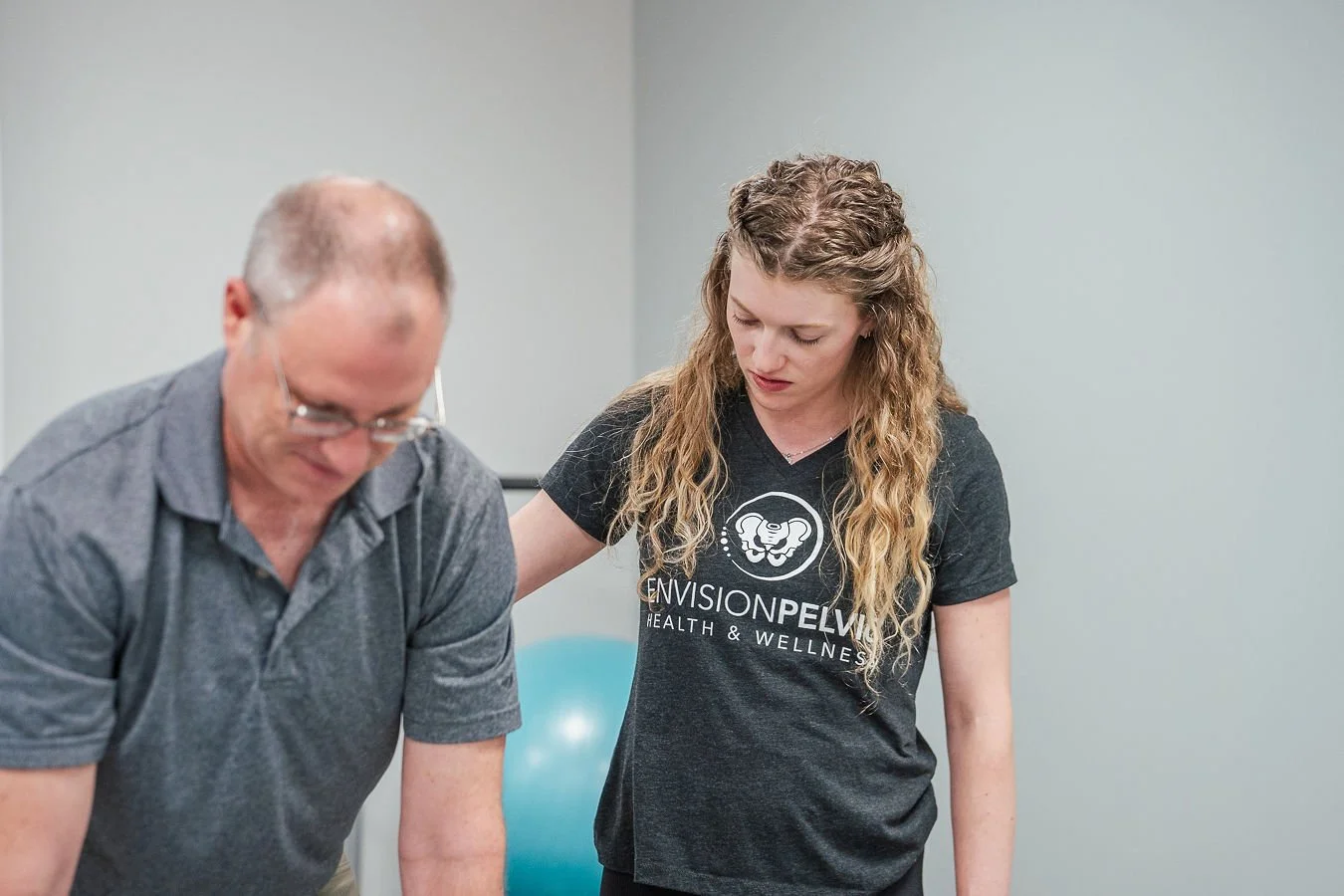
Male Pelvic Floor Physical Therapy
If you're dealing with pelvic pain, urinary issues, or sexual dysfunction, you're not alone. At Envision Pelvic Health & Wellness, we specialize in pelvic floor physical therapy for men. We understand that these symptoms can be frustrating, confusing, and difficult to talk about—but they’re also very common and very treatable.
Male Pelvic Conditions We Commonly Treat:
Pelvic pain (testicular, perineal, groin, rectal, or lower abdominal pain)
Erectile dysfunction related to pelvic floor dysfunction
Pain with erection or ejaculation
Post-ejaculation pain or pressure
Hard flaccid syndrome
Chronic pelvic pain syndrome (CPPS) / prostatitis-like symptoms
Urinary urgency, frequency, or weak stream
Post-void dribbling or incomplete emptying
Urinary leakage
Constipation or bowel incontinence
SI joint or tailbone pain
Pain or tightness following hernia repair, prostatectomy, or other pelvic surgeries
Causes of Male Pelvic Floor Dysfunction
Pelvic floor dysfunction in men is often due to muscle tension, nerve irritation, poor coordination, or postural imbalances. It can be triggered by:
Surgery or scar tissue (especially hernia or prostate procedures)
High-impact exercise or heavy lifting
Long-term stress or guarding
Poor posture or breathing mechanics
Constipation or poor bathroom habits
Direct injury or trauma to the pelvis or tailbone
These muscles are deeply connected to how your body functions every day—urinating, having a bowel movement, experiencing sexual activity, or even just sitting comfortably.
How Pelvic Physical Therapy Can Help You
We take a full-body, personalized approach to help you get real results—without guesswork or generic advice.
Your care may include:
Pelvic floor muscle retraining (relaxation, strengthening, or both)
Manual therapy to release tightness and improve mobility
Breathwork and core coordination
Scar tissue mobilization
Postural and movement re-education
Toileting mechanics and habit retraining
Referrals to other specialists (urology, GI, etc.) if needed
You'll get one-on-one care in a private setting where you’ll feel heard and respected. No fluff, no judgment—just a focused plan to get you back to feeling like yourself.




